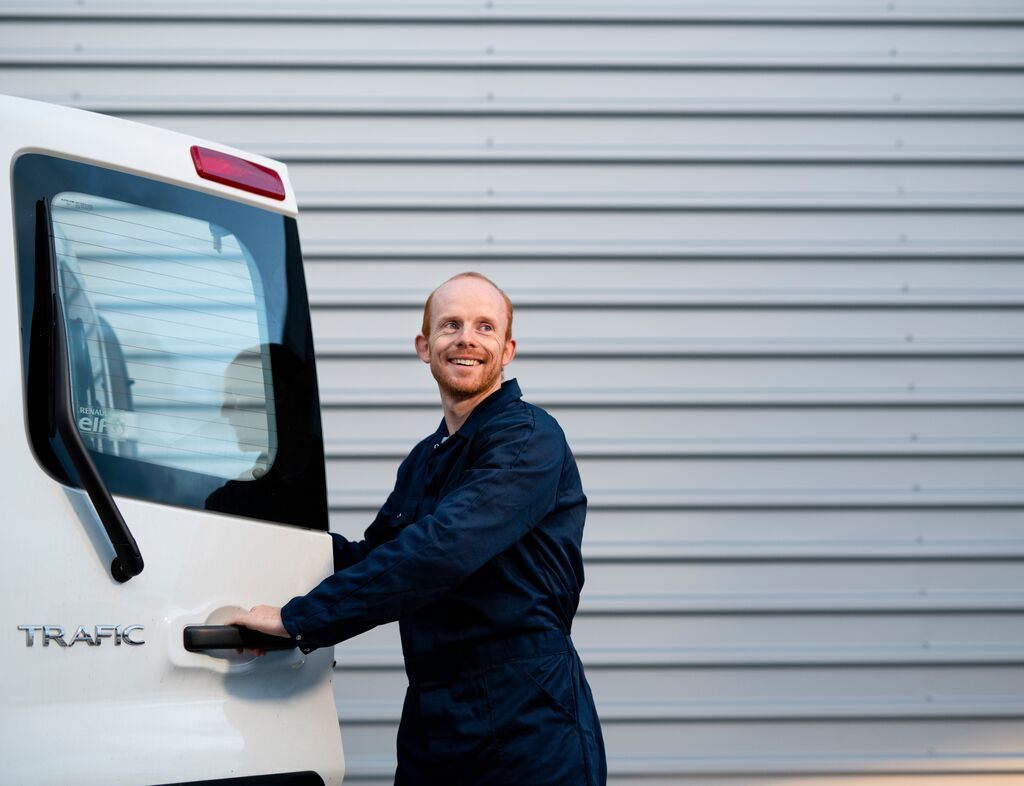The rapid spread of Coronavirus (COVID-19) has had a major impact around the world. Governments, citizens and businesses are all doing their bit to reduce the health risks. The advice is to avoid all non-essential travel and to minimise personal contact. Remote working has been implemented wherever possible.
Key workers are pulling out all the stops to keep essential services such as healthcare, governmental offices and supermarkets running. Many car makers are shutting down their plants. Shops are closing and production lines are grinding to a halt. The resulting economic uncertainty is affecting all organisations. This unprecedented situation calls for decisive action, and that includes with respect to vehicle fleets. This article outlines some steps that you can take immediately.
Key guidance
1. Focus on what is essential
Instruct drivers to avoid all non-essential travel: employees should work from home whenever possible, and hold meetings by phone/videoconferencing. Postpone any non-essential vehicle repairs and maintenance, such as tyre replacement.
2. Hold off ordering new vehicles
Now is not the time to be committing yourself to long-term agreements. Contact your lease company to explore how you can get more out of your existing fleet.
3. Extend the duration of your current lease agreements
Increase the mileage limit so that vehicles on your fleet can remain in use for longer. Depending on the vehicle, this could possibly be extended up to a maximum of 155,000 miles / 250,000 km. (Source 1)
4. Take a flexible approach to mobility
When alternative forms of transport are required, advise drivers to avoid public transport. This will minimise the risk of infection, and maximise the safety and availability of public transport services for key workers.
Allocate surplus vehicles in your fleet to drivers who would normally be eligible for a new vehicle, or make them available for ad hoc use.
What can fleet managers do to help?
LeasePlan, and our suppliers, are taking necessary measures to protect everyone’s health and safety. However, to minimise the risk of infection and ensure that there is sufficient capacity for urgent tasks, we also need your help.
Postpone non-essential activitiesTasks such as maintenance, repairs, tyre replacement and bodywork are often not essential. However, road safety is always the top priority. If a vehicle urgently needs a service to remain safe to drive, then we will of course be happy to help you. In that case, register the vehicle for a service.
We are continuously monitoring the availability of parts to ensure that essential work can still be carried out.
Remote working and connectivity
Now that travel is restricted, a huge number of people are working from home – including employees who usually spend a lot of time out on the road visiting customers. You can help those employees by offering them remote-working tips and connectivity solutions, such as videoconferencing tools so they can hold online meetings. For example, solutions such as Skype, Microsoft Teams and FaceTime enable employees to stay in touch and sustain ‘business as usual’ as much as possible.
Economic uncertainty
Almost all organisations – from multinationals and corporations to small businesses and freelancers – are directly affected by the current coronavirus crisis. Orders are being cancelled, appointments are being postponed and hence revenue is down. Many companies are requesting short-time working for their workforce, and nobody knows how long the current situation will last. Furthermore, many car makers have completely shut down their plants, leading to long delivery times for existing and new vehicle orders.
This is likely to affect vehicle prices, and so too is the latest change currently being made to the WLTP2 protocol. This will have a knock-on effect on your lease costs and the fiscal situation for drivers.
In view of all this economic uncertainty, now is not the time to be committing yourself to a long-term agreement. Therefore, we are advising customers not to order new lease vehicles for now.
Extend lease agreements
Wherever possible, you should extend your existing lease contracts in order to avoid having to order new vehicles right now. Contact LeasePlan to discuss which lease agreements can be extended and how you can optimise the benefits. One way to increase the number of agreements you can extend is to review the mileage limits. Many companies work with standard limits of 100,000 m for petrol, hybrid and electric vehicles, and 150,000 m for diesels and diesel hybrids. Depending on the vehicle, however, a maximum limit of up to 200,000 m may be possible.
Surplus vehicles in your fleet? Use them first
If you have any unused vehicles in your fleet, reallocate them to drivers who would normally be eligible to order a new vehicle. Many companies have included a clause in their lease policy to cover this scenario. This solution avoids incurring unnecessary costs for returning surplus vehicles and is also an easy way to delay the ordering of new vehicles.
Conclusion
The Coronavirus pandemic is a challenging time for everyone, including for fleet managers. At LeasePlan, we hope that this advice will help you to take decisive action so that you can continue to manage your fleet as effectively as possible under the circumstances.
Postpone non-essential activities, including travel and routine maintenance. Do not place new vehicle orders. Extend existing agreements. Make optimal use of surplus vehicles in your fleet. If extra vehicles really are needed, choose a flexible mobility solution such as a used-car lease, short lease or rental vehicles.
These measures will help us all to stay as safe and as mobile as possible.
Get in touch
To find out more please speak to your LeasePlan Account Manager or get in touch here.
Stay up to date
It’s important to regularly check the Government’s website to stay up to date. You can read more on our response to the Covid-19 crisis here.




